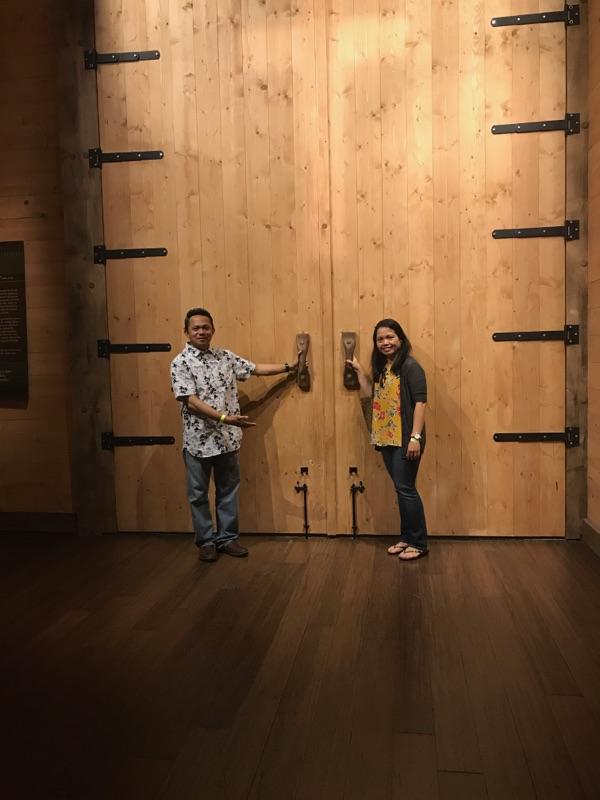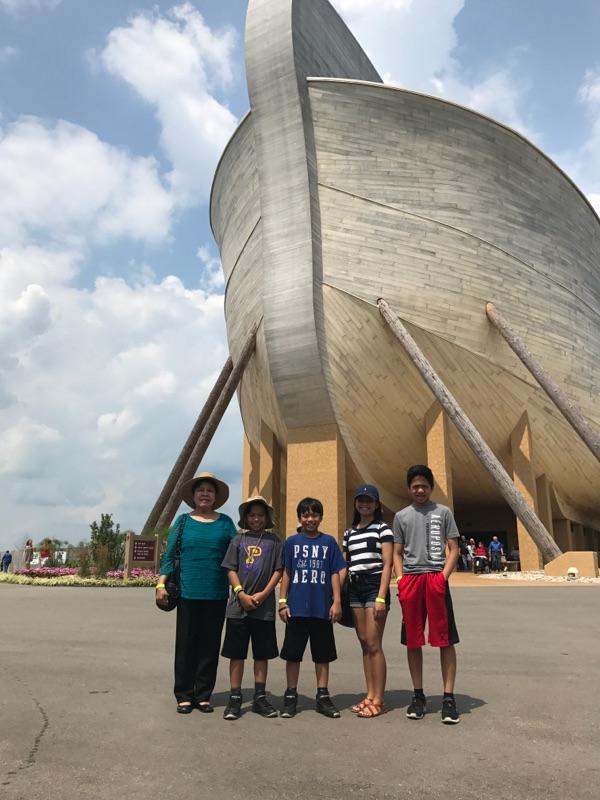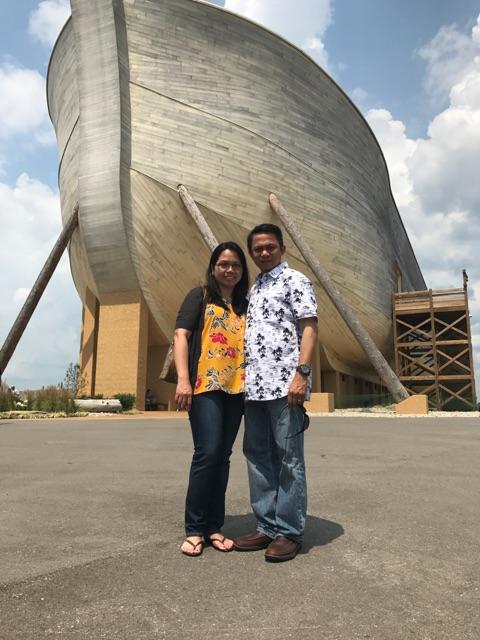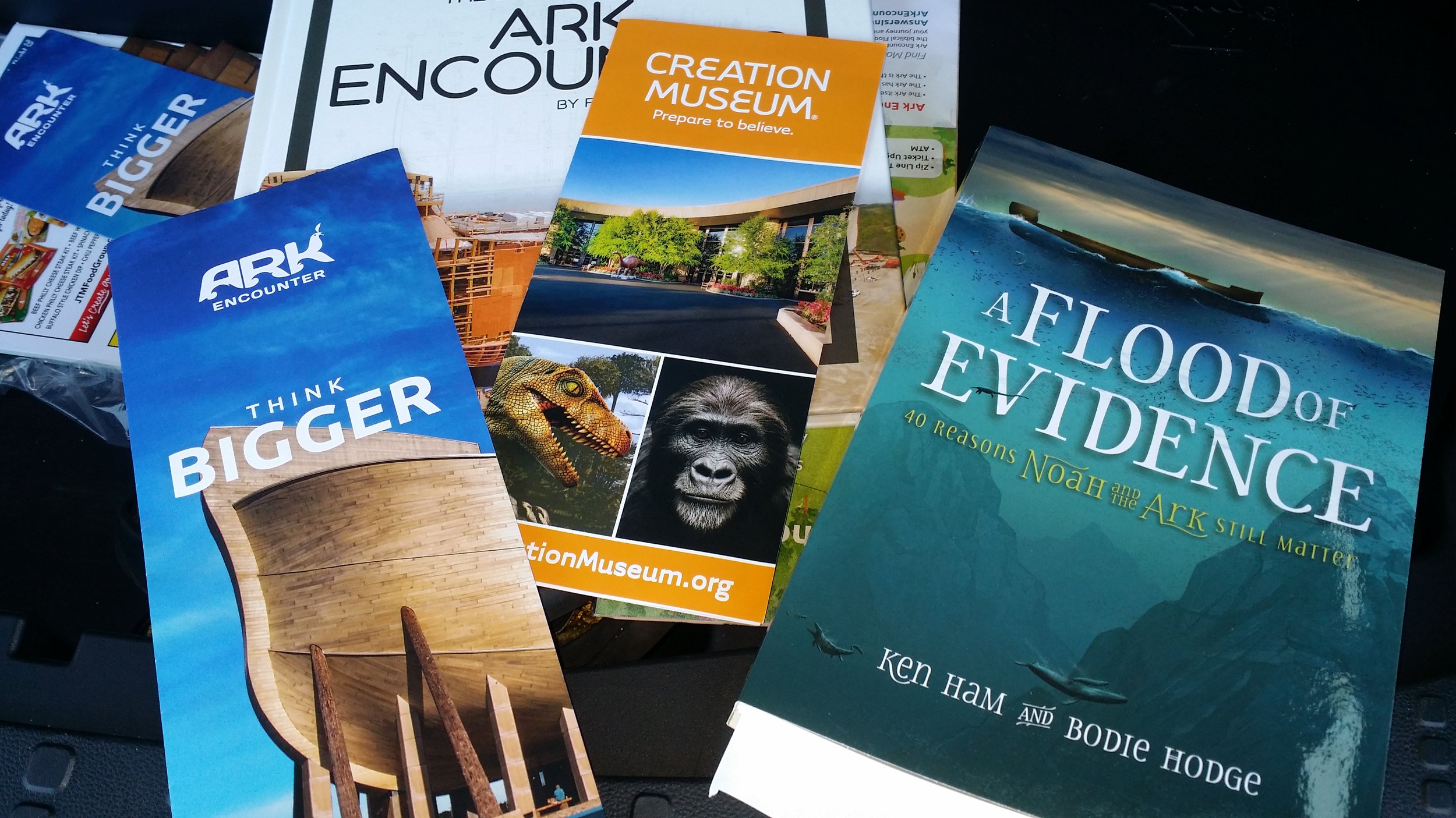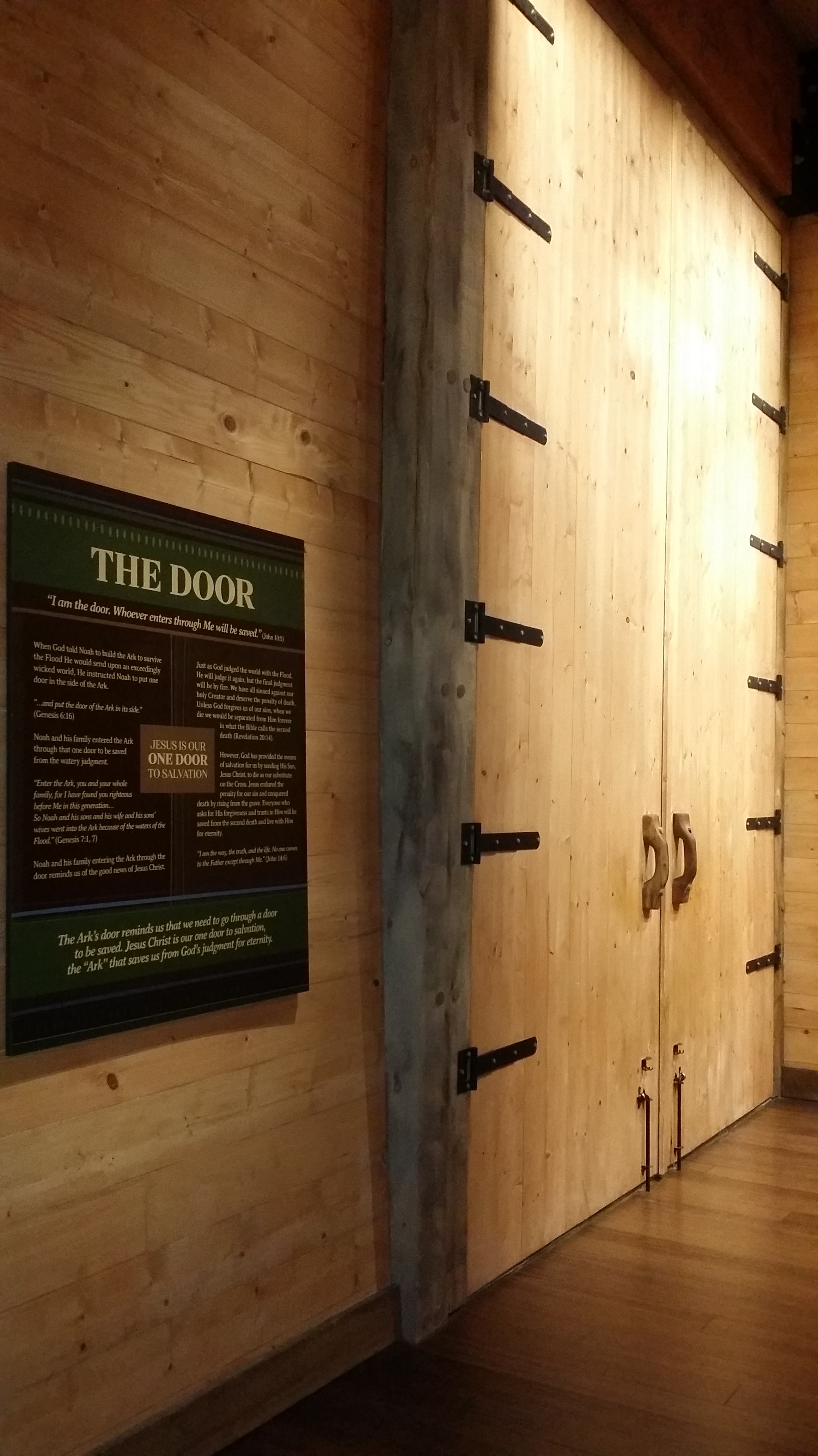
The Pastor's Blog
Stephen Hawking - A Brilliant Mind That Points to a Brilliant Creator
Stephen Hawking, a world renowned physicist and best-selling author, died early Wednesday in Cambridge England. He is best known for his book, "A Brief History of Time," incidentally a book filled with questions and references about God. He was afflicted with Lou Gehrig's disease, a debilitating neurological disease that progresses and grows worse over time. Yet he overcame this disease and went on to become one of the most famous scientists of our time.
He is known to be an atheist, one who does not believe in the existence of God. But Hawking had denied charges that he was an atheist according to Henry Schaefer, a computational and theoretical chemist. Schaefer stated that when being accused as an atheist, Hawking responded, "I thought I had left the question of the existence of a Supreme Being completely open. . . It would be perfectly consistent with all we know to say that there was a Being who was responsible for all the laws of physics." Schaefer further theorizes that Hawking could have been an agnostic - one who is unsure about God, or a deist - one who believes in God's existence but is detach from His creation.
In one interview with CNN, he quoted, "God may exist, but science can explain the universe without the need for a creator. Notice how he qualified his statement, "God may exist," and not the categorical "God does not exist." Science may give answers to many of the laws that govern nature but science does not explain nor will attempt to explain the meaning of existence, nor the existence of an objective moral values in humans. Paul Davies, an English Physicist, puts it succinctly:
“Science is based on the assumption that the universe is thoroughly rational and logical at all levels. Atheists claim that the laws of nature exist reasonlessly and that the universe is ultimately absurd. As a scientist, I find this hard to accept. There must be an unchanging rational ground in which the logical, orderly nature of the universe is rooted.”
And Gerald Schoeder, an Orthodox Jewish Physicist, asks the one question that matters:
“The most powerful challenge to atheist’s view of the world lies within the world itself: the simple reality of existence. Why is there existence? Forget things as complex as life. Just consider the being of anything: space, time, matter in any form. Is there some law, some axiom, that demands there be existence independent of an underlying force that brought it into being? Even if we posit that the universe and all existence are eternal, the question remains: Why is there an is? It’s a question that call for an answer.”
And this points to the existence of a Divine Rational Being who caused all things to exist. The Psalmist knew this long before there were telescopes, software programs, and computers, "The heavens declare the glory of God; the skies proclaim the work of his hands. Day after day they pour forth speech; night after night they display knowledge. There is no speech or language where their voice is heard" (Psalm 19:1-3).
Stephen Hawking's brilliant, inquisitive mind did not happen by chance nor by random evolutionary process but it can only be attributed to an equally brilliant mind, far superior than anyone, who designed such a complex, rational brain and created a universe full of wonder that provides scientists a full time job to explore.
I'll close with a powerful observation made by Dinesh D' Souza:
"In the secular account, you are the descendant of a tiny cell of primordial protoplasm washed up on an empty beach three and half billion years ago. You are a mere grab bag of atomic particles, a conglomeration of genetic substance. You exist on a tiny planet in a minute solar system in an empty corner of a meaningless universe. You came from nothing and you are going nowhere. In the Christian view you are the special creation of a good and all powerful God. You are the climax of his creation. Your creator loves you so much and so intensely that he desires your companionship and affection that he gave the life of His only son that you might spend eternity with him."
Psalm 35 - When Life Hangs in the Balance
It was a missile launch that never was. January 13, 2018 is a day the people of Hawaii will never soon forget. A “Day of Infamy” we might as well call it - yet in a different, dreadful sense to individuals affected the most. It was the day a state employee pressed the wrong button that triggered a false emergency alert and sent shock waves through the islands. It read, “Ballistic missile threat inbound to Hawaii. Seek immediate shelter. This is not a drill.”
With all the fiery rhetorics going on between the US and North Korea that keep people on the edge, this warning definitely sent shivers down the spine of every resident, visitor, and tourist alike. Soon panic began to seize the population thinking they had only minutes left to live. It took state officials 38 minutes after the false alarm was mistakenly sent to issue a correction. But the terrifying damage had been done as people began frantically calling for their loved ones, cars stopped in the middle of the road as drivers and passengers searched for shelter while nervously looking up in the sky.
This was definitely not a good way to start the new year especially in a beautiful paradise - Hawaii. I spent three years there. But the year 2018 is just too scary to go it alone with the ever increasing threat of a nuclear war in modern times. And not only on a global scale but on a personal level - the challenges we face each and every day require that we need someone to help fortify our faith, bring courage and calm to our soul, and instill hope in the midst of despair.
This is where Psalm 35 comes in as it gives us some of the clearest words of assurance and encouragement when our lives hang in the balance. David wrote this Psalm when his life was in danger from a madman, King Saul, who pursued him relentlessy in a diabolical plot to kill him. David couldn’t understand why Saul wanted him dead. He saved Israel from the ignominity of defeat when he challenged and decapitated the Philistines’ champion, Goliath. He fought Saul’s battles and won decisively. He spared Saul’s life when he had the chance to silence him. Yet in spite of all the good he had done for the nation the insecure, paranoid king spent all the resources of his kingdom and his strength pursuing the wrong target which left a confused, bewildered David.
The message of Psalm 35 is very clear: when we are overwhelmed by life’s vicissitudes - the downturns or the ups and downs of life - we should always allow God to fight our battles instead of our own puny strength. Let go and let God.
In Psalm 35 David implores God, “O Lord, oppose those who oppose me. Fight those who fight against me. Put on your armor, and take up your shield. Prepare for battle, and come to my aid. Lift up your spear and javelin against those who pursue me. Let me hear you say, ‘I will give you victory!’” David himself was mighty warrior who bore the scars of bloody battles. But he knew that there was a better and greater Warrior than he was in whom he could rely on when his strength failed him. In effect he was saying, “God you are bigger and more powerful than I am. Be the One to fight my battles.”
What happened in Hawaii is a wake up call. I have a lot of relatives there and we are grateful that it was just a false alarm. Yet it was one those unnerving moments when questions of whether we are ready to die or not come roaring in the back of our mind. What if the missile launch was indeed a real one and God forbid we happened to be there? Is the question of eternity a settled matter in your life?
Some 2,000 years ago a man by the name of Nicodemus went to Jesus seeking for answers. In that remarkable encounter, Jesus made the most profound yet simpliest statement of all coupled with an invitation that has eternal consequences, “For God so loved the world that He gave His only Son so that whosover believes in Him should not perish but have an everlasting life.”
Psalm 31 - What in the world is going on? Mass shooting in Las Vegas...wildfires in California
The ongoing wildfires in northern California have killed 40 people and burned down almost 6,000 homes as of this writing. Among the dead was an elderly couple who had just celebrated their 75th wedding anniversary - the man was 100 years old and his wife was 98.
Just over a week ago in what is now known as the worst mass shooting in modern US history a sick individual sprayed bullets on thousands of concertgoers in Las Vegas killing 58 people and wounding hundreds more.
There are no simple answers to the pain and suffering in the world. We can preach or pontificate about it but to the families of the victims of the deadly fires in California and mass shooting in Las Vegas who are still grappling with their tragedies there is probably nothing that could make sense right now, only the reality of the searing pain of sorrow and loneliness.
We live in troubled times. So where do we turn to when the chips are down and we are faced with personal tragedies? Well we are a free people and we can respond any way we want. We can either give in to our circumstances or try to overcome them. Our responses will always boil down to two realities - either through rebellion or submission.
In Psalm 31, we find David in the midst of despair and and he did not hide the fact that he was fast losing it, "Be merciful to me, Lord, for I am in distress; my eyes grow weak with sorrow, my soul and body with grief. My life is consumed by anguish and my years by groaning; my strength fails because of my affliction, and my bones grow weak."
But then David knew exactly where to go and how to respond to his despair. He turns to the ROCK and holds on to Him in the most distressful time of his life, "In you, Lord, I have taken refuge; let me never be put to shame; deliver me in your righteousness. Turn your ear to me, come quickly to my rescue; be my ROCK of refuge, a strong fortress to save me. Since you are my ROCK and my fortress, for the sake of your name lead and guide me...into your hands I commit my spirit; deliver me, Lord, my faithful God."
Sure we can choose to be in rebellion and reject any thought of God but where else can we turn to? Outside of God everything else will only offer temporary relief, a false sense of security and artificial rest. The soul will continue to groan and be restless if its Creator is taken out of the equation.
David chose his one and only best option. He gathers himself up and proclaims, "But I trust in you Lord; I say, 'You are my God.'" Even in our deepest lost and brokenness we can say with David, "How abundant are the good things that you have stored up for those who fear you, that you bestow in the sight of all, on those who take refuge in you."
I'd like to paraphrase his last words, "Be strong and take heart for He is with you no matter what. As you hope in the Lord, He will sustain you."
Two thousand years ago, Jesus reassured a jittery group of disciples, "In this world you will have trouble. But take heart! I have overcome the world."
Psalm 30 - The Transitory Nature of Human Suffering
 Life on earth is but a speck of time in the light of eternity. Our pain and suffering are but a passing moment that teach us to endure and turn to someone bigger than ourselves. Psalm 30 reveals David's understanding of the transitory nature of human suffering. He reflects, "Weeping may endure for a night, but joy comes in the morning."
Life on earth is but a speck of time in the light of eternity. Our pain and suffering are but a passing moment that teach us to endure and turn to someone bigger than ourselves. Psalm 30 reveals David's understanding of the transitory nature of human suffering. He reflects, "Weeping may endure for a night, but joy comes in the morning."
Life is a series of pain, disappointments, and frustrations one after the other. But in between our lowest points are also moments marked by rejoicing and celebration such as the birth of a child, the union of two lovers in marriage, or the excitement of grandparents over their grandchildren. Life is hard. But life is also good.
Psalm 30 enumerates David's own personal battles and how he's been thrilled by answered prayers. He extols God for His protection from his enemies, rejoices in his physical healing, exults in God for saving him from certain death, and praises God "for His anger only last for a moment but His favor is for life."
Each of us has a story to tell and we bear the scars of life, some not so serious but others have run through the full gamut of human suffering so unbearable that they have been changed forever. It tugs at the heart yet the perseverance of the human spirit when tested beyond limits would often leave us breathless in silent wonder.
"You have turned for me my mourning into dancing; You have put off my sackcloth and clothed me with gladness," declares David. Take heart. Our suffering is but transitory; this too shall pass. For even in death the body takes a respite and the redeemed spirit goes back to its Maker in glorious rhapsody. Trust the One who is all too familiar with human suffering - Christ Himself. He assures us:
"Peace I leave with you; my peace I give you. I do not give to you as the world gives. Do not let your hearts be troubled and do not be afraid" (John 14:27).
Psalm 29 - "The LORD sat enthroned at the Flood" - Hope in the Midst of the Fury of Hurricane Harvey
 The catastrophic flooding in Texas and parts of Louisiana brought about by Category 4 Hurricane Harvey is a heart-breaking spectacle that once again demonstrates the formidable power of nature over humanity resulting in so much destruction, chaos, broken dreams and devastated lives.
The catastrophic flooding in Texas and parts of Louisiana brought about by Category 4 Hurricane Harvey is a heart-breaking spectacle that once again demonstrates the formidable power of nature over humanity resulting in so much destruction, chaos, broken dreams and devastated lives.
Scenes of elderly people in a nursing home (photo above) trapped in waist-deep waters, dazed parents and children in rescue boats, submerged roads and cities, flooded homes and people in tears who lost everything move us deeply and touch the very core of our being. Storms, like any other natural calamities, are ones of the great equalizers of life. It affects all poor and affluent nations alike - from America to Zimbabwe.
How do we make sense of such a tragedy brought on by hurricane Harvey? Is there any hope left for those who lost virtually everything they worked for their entire lives? Psalm 29 offers a ray hope:
"The voice of the LORD is over the waters; the God of glory thunders; the LORD is over many waters. The voice of the LORD is powerful; the voice of the LORD is full of majesty."
In the midst of the fiercest storm that we encounter in life, the voice that we need to hear the most amid other conflicting voices is a voice that brings order, reassurance, and hope - a voice powerful enough to calm the raging tempest within our soul. Hurricane Harvey brought so much destruction and displaced tens of thousands of people. But there is no storm powerful enough to silence the voice of the LORD. David knew this full well:
"The LORD sat enthroned at the Flood, and the LORD sits as King forever."
Hold on tightly upon God if you are experiencing a personal storm in your life today. For the people of Texas and Louisiana our hearts go out to them and we offer our sincere thoughts and prayers. May Psalm 29 give all of us encouragement and hope in the midst of our storms: "The LORD will give strength to His people; the LORD will bless His people with peace" - peace, the shalom of God that provides completeness - restful well-being, is ours through a relational faith in His Son, Jesus Christ.
Martin Luther King Jr. Got It Right
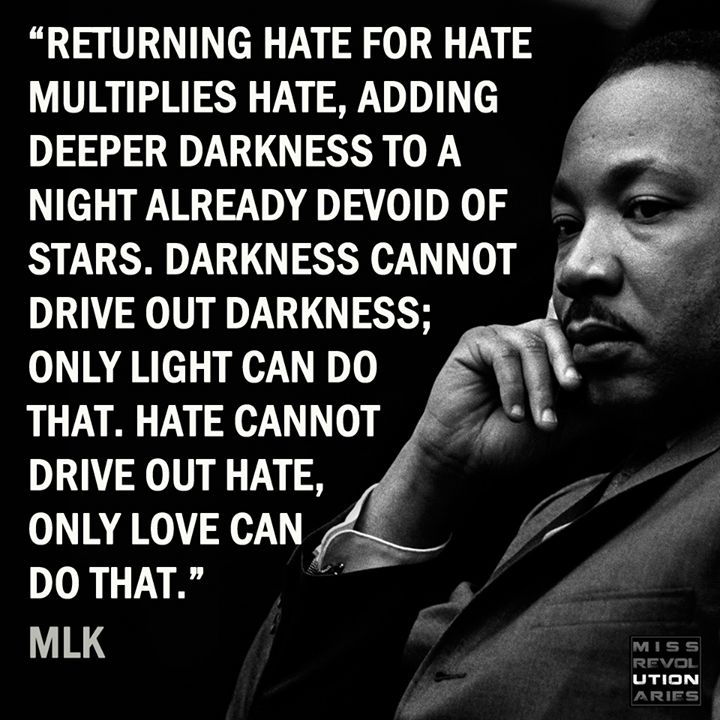 In the aftermath of the Charlottesville tragedy the clear, articulate voice of the Rev. Martin Luther King Jr., comes to mind where he echoed Romans 12:9-10:
In the aftermath of the Charlottesville tragedy the clear, articulate voice of the Rev. Martin Luther King Jr., comes to mind where he echoed Romans 12:9-10:
"Let love be without hypocrisy. Abhor what is evil. Cling to what is good. Be kindly affectionate to one another with brotherly love, in honor giving preference to one another."
We can either choose to hate or embrace the way of love. A skilled lawyer once asked Jesus which one is the greatest of all the commandments. In essence Jesus unequivocally said, "Love God supremely and love others unconditionally."
These two are intrinsically related to each other. Without God's love it is difficult to love others consistently and purely; true love for others flows from the unconditional love of God borne out of a relationship with Him. This alone has the power to break the stronghold of hatred in someone's heart.
Martin Luther King Jr. got it right.
Psalm 28 - The Silence of Heaven
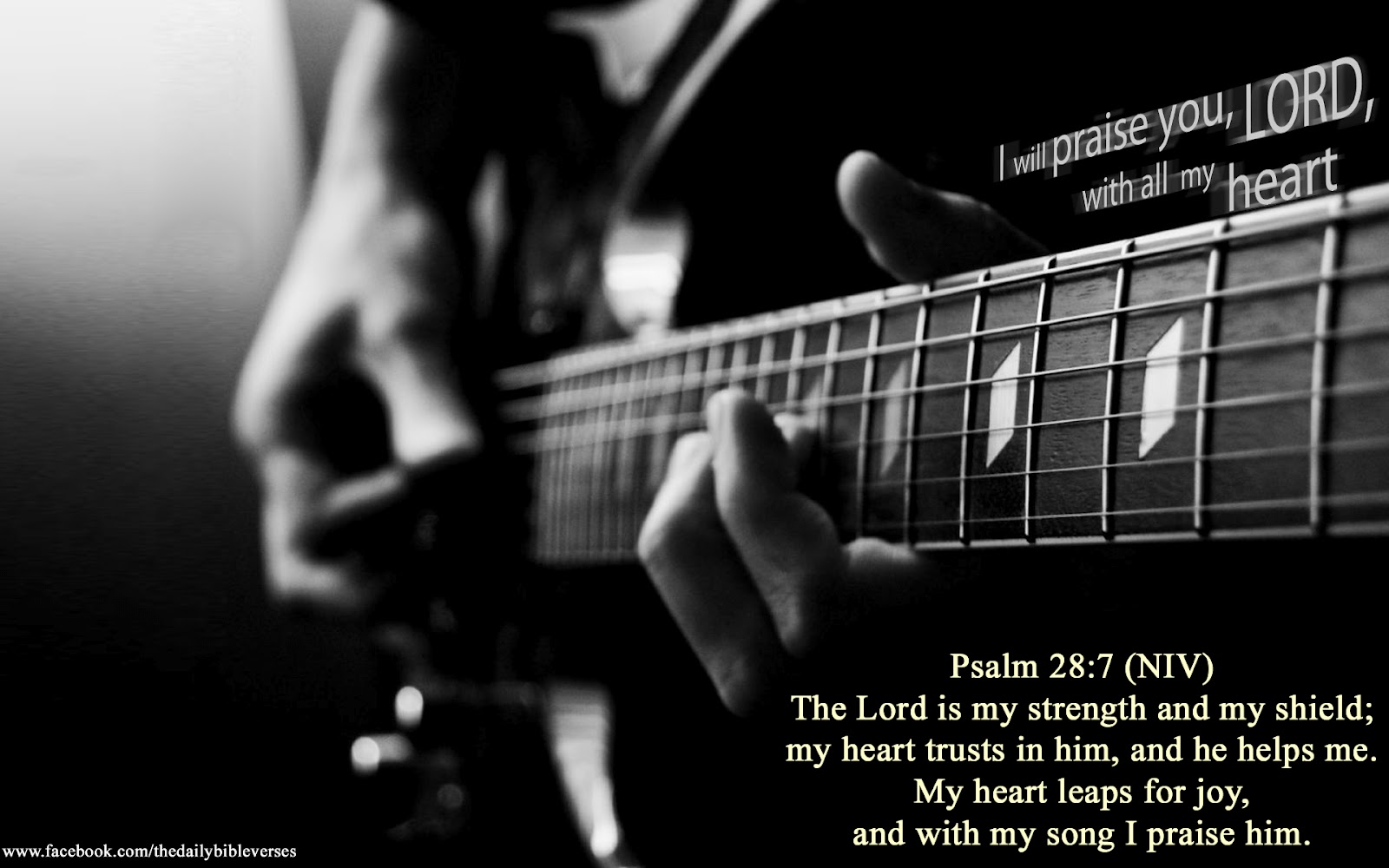 "Do not be silent to me, lest, if you are silent I become like those who go down to the pit," so says a dejected David who feels forsaken in his direst needs.
"Do not be silent to me, lest, if you are silent I become like those who go down to the pit," so says a dejected David who feels forsaken in his direst needs.
What are we to do when heaven becomes silent and we think we are left to fend for ourselves? A prayer that goes unanswered for a long time. Or a prayer that came with an answer but contrary to what we had desired.
There are no easy answers. At best, life's complexities often drive us to great lengths of searching and reflecting. At worst, they leave us perplexed and questioning the very existence of God, and like David we feel consigned to a state of abandonment like the rest of the unbelieving world with no hope.
God's silence or the perception of such silence serves a noble purpose. Among others, it builds in us character and deepens our submission to His loving authority in a way that has never been done before. Heaven will not always be silent. It is in the fire of our suffering that His presence is made real. When that which has been divinely purposed in us comes to fruition we are renewed and reinvigorated. Let's listen in to David after a long time of waiting:
"Blessed be the LORD, because He has heard the voice of my supplications! The Lord is my strength and my shield; my heart trusted in Him, and I am helped; therefore my heart greatly rejoices, and with my song I will praise Him."
Hang in there. His grace is more than sufficient. In this Psalm, David references Jesus as a Savior and a Shepherd who saves and nurtures His people (verses 8,9). This particular psalm has blessed my heart today and I'm sure it will warm your heart too as you meditate upon it.
An Engineering Wonder
It is just fascinating to revisit the story of Noah and the great ark he built. Allow me to share a few thoughts.
The building of the ark all the way down to its minute details is an engineering wonder and one of the most audacious undertakings ever done by humans.
The intricate planning to build a "floating zoo," the logistical, manpower, and engineering challenges involved are way beyond our grasp.
And once the ark is completed, sanitation, health concerns, and daily food provision for over a year for the animals and humans aboard must have been carefully pre-planned.
To many of the people in Noah's day it is the craziest project ever conceived and flies in the face of reason and logic.
Yet day after day, week after week, month after month…as the years go by (60-70 years by some estimate) Noah acts on his faith and completes the ark in the midst of relentless mockeries and insults.
Twice the Genesis narrative describes Noah as one who “did according to all that the LORD commanded him” (Genesis 6:22, 7:5).
Noah’s faith is not a reckless kind of faith but one that is anchored on the Word of God. It is this kind of faith that earned him a place in God’s heroes of faith, “ By faith Noah, being divinely warned of things not yet seen, moved with godly fear, prepared an ark for the saving of his household, by which he condemned the world and became heir of the righteousness which is according to faith” (Hebrews 11:7).
And by way of explicating the reality and importance of faith amidst an array of the great heroes of the faith, the writer to the book of Hebrews declared in no uncertain terms, “But without faith it is impossible to please Him, for he who comes to God must believe that He is, and that He is a rewarder of those who diligently seek Him” (Hebrews 11:6). EC.
Psalm 27 - The Antidote to Fear
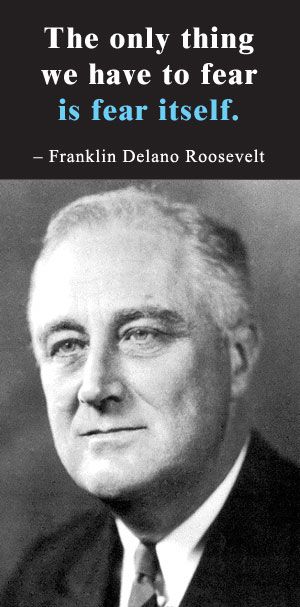 It was Franklin Delano Roosevelt on his first inaugural address who famously said, "The only thing we have to fear is fear itself." Fear has a debilitating, paralyzing effect even when it resides only in the imagination.
It was Franklin Delano Roosevelt on his first inaugural address who famously said, "The only thing we have to fear is fear itself." Fear has a debilitating, paralyzing effect even when it resides only in the imagination.
In Psalm 27, David begins with a very positive declaration. Twice he proclaims that he doesn't fear anyone or anything. Notice his words, "The Lord is my light and salvation; whom shall I fear? The Lord is the strength of my life; of whom shall I be afraid?"
If we take a close look at this Psalm, it wouldn't take long for us to discover David's secret to living a fearless life.
Verse 4 holds the key: "One thing I have desired of the Lord that I will seek..." And what is David's number one priority in his life? It is to draw near God and enjoy His presence all the days of his life. David has gotten so familiar with the ways and character of God that his confidence in Him has become firm and unshakeable. Fear vanishes in the presence of love.
The more we get to know the powerful God of the Scriptures the less fear has a hold on us. The more we depend on our abilities and circumstances the greater fear has influence over us. Personal closeness with God drives away fear.
David confesses that he would have lost heart "unless I had believed that I would see the goodness of the Lord in the land of the living." David's life is a myriad of difficult circumstances, yet he always holds out in fervent hope of God's goodness and redeeming power. He is absolutely certain regardless of his situations in life that God will be there for him. He knows God from personal revelation and experience borne out of intimate knowledge of Him.
Towards the end of Psalm 27, David underscores the importance of learning to wait upon the Lord, "Wait on the Lord; be of good courage, and He shall strengthen your heart; wait, I say, on the Lord!" The kind of waiting David is talking about is an active engagement that implies trustful expectation in God's sovereign will that He will work everything out for our good and for His glory. Fear will not thrive in this kind of spiritual environment.
"And the peace of God, which surpasses all understanding, will guard your hearts and your minds in Christ Jesus." (Philippians 4:7)
Psalm 26 - The Prayer of a Truly Converted Soul
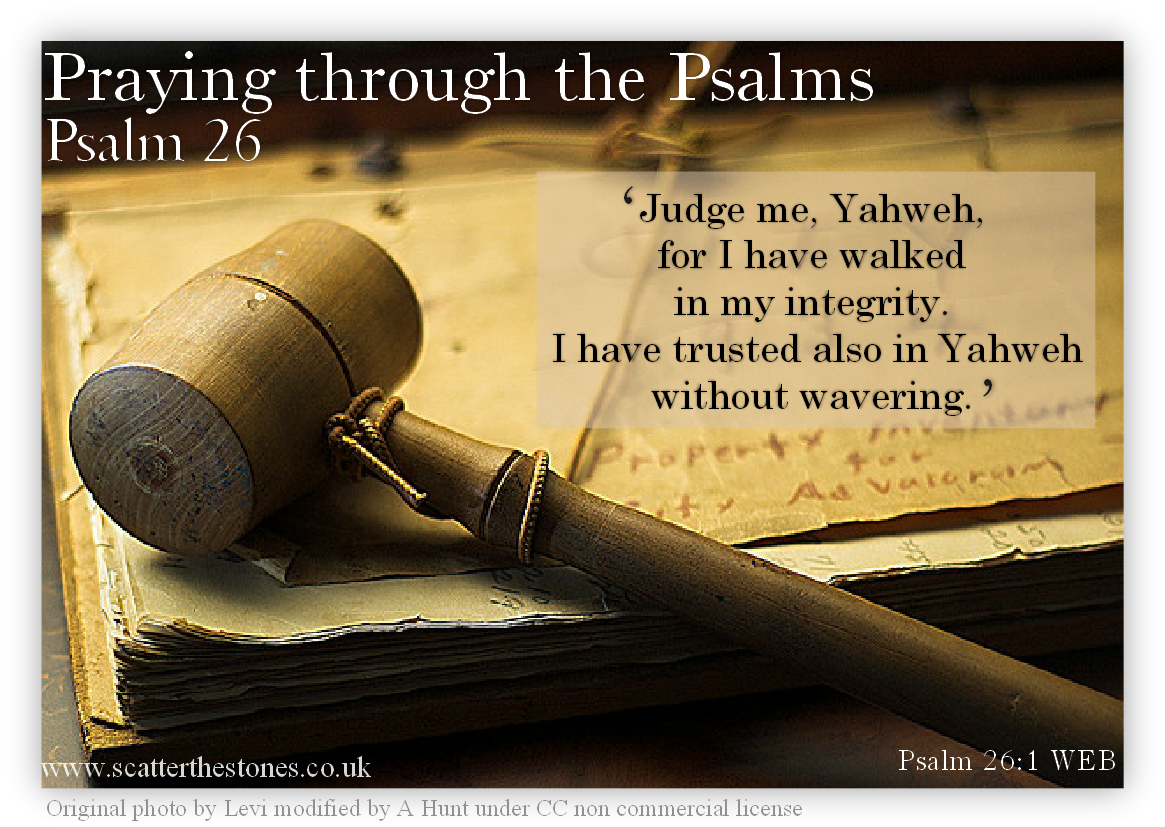 Salvation is the impartation of a new nature in a person's life. You can tell a Christian by the way he or she lives. His desires are now entirely different from before he came to know Christ. Her focus is to live honoring and glorifying God.
Salvation is the impartation of a new nature in a person's life. You can tell a Christian by the way he or she lives. His desires are now entirely different from before he came to know Christ. Her focus is to live honoring and glorifying God.
Whereas Psalm 25 is a plea for God's forgiveness because of one's sins, Psalm 26 is a prayer of a person who has been totally forgiven by God. It is a prayer brimming with confidence not in one's ability to be good, but in God's ability to forgive.
"Vindicate me, Lord," David implores of God, "for I have led a blameless life; I have trusted in the Lord and have not faltered." Some may say that it is rather condescending to pray a prayer like that for after all no one is entirely blameless. But then David expresses that it is through God's love and His faithfulness that give him such confidence: "for I have always been mindful of your unfailing love and have lived in reliance on your faithfulness."
Our basis in claiming righteousness does not rest on our ability to achieve it but rather on God's ability to impart it through faith in Christ's finished work on the cross.
Far from being perfect but when we are living in Christ and His life is flowing through us there is now a feeling of disinclination toward anything that is ungodly. Notice David's change of character: "I do not sit with the deceitful, nor do I associate with hypocrites. I abhor the assembly of evildoers and refuse to sit with the wicked."
After David has experienced God's deliverance, now his heart is tuned to worship, "I wash my hands in innocence, and go about your altar, Lord, proclaiming aloud your praise and telling of all your wonderful deeds. Lord, I love the house where you live, the place where your glory dwells."
Psalm 26 teaches us what a truly converted person to the Lord is like. First, there is confidence in the forgiveness of sin that God grants. Second, there is a distinct aversion to wickedness. And third, a truly converted person is someone who is drawn to worship Him.
Wait there is a fourth one, the last verse gives us another one, "My feet stand on level ground; in the great congregation I will praise the Lord." A truly converted person has a desire to witness for the Lord publicly in "the great congregation." How can we not witness if we have received the greatest gift of all. There is within the heart of a truly converted person an irresistible force to share what he has found.
Supreme Court Justice Nominee Neil Gorsuch and the “Nuclear Option”
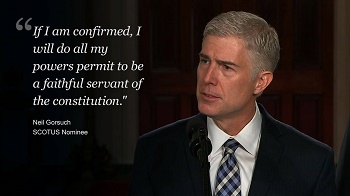 Today marks the beginning of what would likely be a contentious Senate confirmation hearing for Judge Neil Gorsuch, nominated to the Supreme Court to fill the vacant seat left by the late Justice Antonin Scalia. He is a Federal Appellate Judge on the United States Court of Appeals for the 10th Circuit – a position given to him with strong bipartisan support from both sides of the political aisle - Democrats and Republicans.
Today marks the beginning of what would likely be a contentious Senate confirmation hearing for Judge Neil Gorsuch, nominated to the Supreme Court to fill the vacant seat left by the late Justice Antonin Scalia. He is a Federal Appellate Judge on the United States Court of Appeals for the 10th Circuit – a position given to him with strong bipartisan support from both sides of the political aisle - Democrats and Republicans.
Neil Gorsuch is known as a staunch Constitutionalist and strong adherent to the rule of law, one who is committed to textualism or originalism – someone who interprets the Constitution based on its original text and language as understood by the original writers, and someone who doesn’t view the Constitution as an evolving or living document subject to changing societal needs.
At his acceptance speech he remarked, “…in our legal order it is for Congress and not the courts to write new laws. It is the role of judges to apply, not alter, the work of the people's representatives." I couldn’t agree more.
As a vigorous battle looms in the Senate for his confirmation with democrats threatening to filibuster his nomination, the possibility for Republicans going “nuclear” by changing the 60-vote threshold with a simple majority of 51 votes championed by the Democrats themselves may actually happen. Indeed it is the only one route to ensure his nomination.
A Harvard Law graduate with sterling judicial record and independence, Judge Neil Gorsuch will be a superb addition to the Supreme Court in the mold of the late Justice Antonin Scalia - someone who will work to preserve one of the nation’s most cherished freedoms – our religious liberties, not just for Christians but for all people of faith.
Psalm 25 - A Childlike Humility
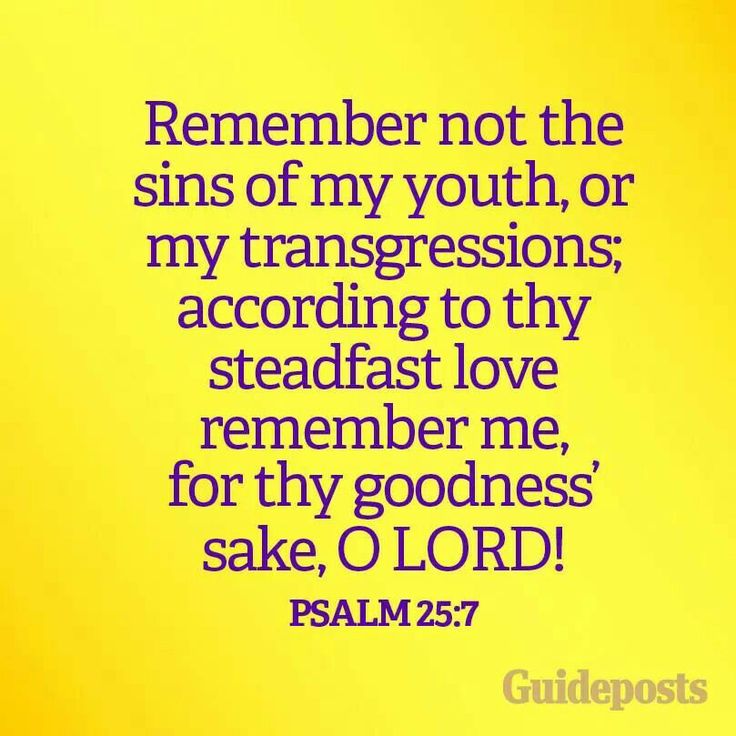 The gnawing feeling of guilt and shame overpowers him. The possibility that his enemies would expose some dark secrets of his past haunts him. Several times, David implores God not to put him to shame. David alludes to the sins of his youth and his rebellious ways and for God not to remember them.
The gnawing feeling of guilt and shame overpowers him. The possibility that his enemies would expose some dark secrets of his past haunts him. Several times, David implores God not to put him to shame. David alludes to the sins of his youth and his rebellious ways and for God not to remember them.
We’ve been there. We experience it from time to time when some dark secrets of our lives come back to haunt us. We wish it never happened. But the reality is we are sinful beings prone to wander and rebel against God.
And so David feeling the weight of his sins asks God, “Remember, LORD, your great mercy and love…do not remember the sins of my youth and my rebellious ways.” He is heartbroken, remorseful, and repentant. He appeals to God on the basis of His mercy and love.
Having gone to the Lord with contriteness of heart David experiences the awesome freedom from guilt and shame that only a gracious God can give. He declares, “Good and upright is the LORD; therefore he instructs sinners in his ways. He guides the humble in what is right and teaches them his way.”
In my readings of the Psalms, I am always impressed with David’s childlike humility especially during the most difficult seasons of his life. Just consider his very first words at the beginning of this Psalm, "In you, LORD my God, I put my trust." When we come to God in the trusting and believing ways of a little child setting aside our pride and selfishness, we will indeed experience God’s amazing grace.
Like David, the moment we experience God’s liberating truth we will want more of Him. In a typical fashion demonstrating David's utter reliance and enjoyment of God, he declares, “Show me your ways, LORD, teach me your paths. Guide me in your truth and teach me, for you are God my Savior, and my hope is in you all day long.” The reference of "God my Savior" obviously refers to the Son of God, Jesus Christ, who is the Savior of the world.
And here’s a beautiful promise for us today, “The LORD confides in those who fear him; he makes his covenant known to them.” The precious gift of intimacy with God is like no other. It comes through a childlike humility.
Psalm 24 - God Owns It All
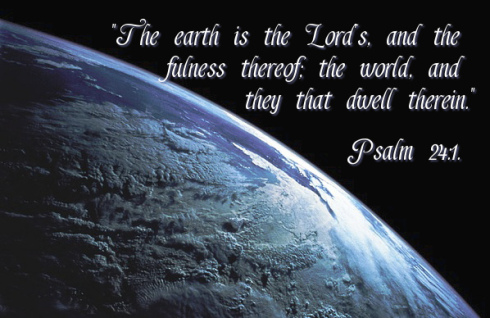 "The earth is the LORD's, and all its fullness..," so says the beginning of this Psalm. Simply stated the verse tells us that God owns it all. It is reinforced by the next statement in the same verse, "...the world and those who dwell therein."
"The earth is the LORD's, and all its fullness..," so says the beginning of this Psalm. Simply stated the verse tells us that God owns it all. It is reinforced by the next statement in the same verse, "...the world and those who dwell therein."
If God owns it all, what then are its immediate theological and practical implications?
If God owns it all, then it debunks and controverts the theory of evolution which espouses that everything in this world sprung on its own through evolutionary processes without someone causing it to happen. All of creation points to a Creator and all of nature is a grand design that points to a powerful, creative Designer.
If God owns it all, then I should live daily in gratefulness and thanksgiving for everything that I am and have acknowledging that without God I have nothing.
If God owns it all, then I should be a careful, conscious steward of everything that has been given to me including all my talents, abilities, wealth, and resources to be used for God's glory and benefit of mankind.
If God owns it all, then there is no room for pride and vain glory for what I think or claim to have achieved and accomplished in life - they are His and His alone - gifts on the basis of His grace and mercy.
If God owns it all, then as a rightful owner there will be a day of reckoning when the owner Himself will ask us to account on how we've lived our borrowed lives, used our opportunities and spent all the resources that are at our disposal.
The implications are endless, but suffice it to say that at the end of the age, apart from our salvation in Christ which is forever secure, our works will be judged on the basis of our faithful stewardship of all the resources that have been entrusted to us by our Master. Having this mindset enables us to live with clarity and purpose.
The Psalmist then moves on to the question of "Who may ascend into the hill of the Lord?" - a question that echoes a previous psalm - Psalm 15. The answer is found in verse 6 - they are the generation of Jacob who seeks God's face. Going up into the hill of the Lord is not something that is accomplished through human efforts but rather through the King of glory (verses 7-10). But it requires seeking after this King of glory; for to be qualified to enter God's holy hill we seek not after our own righteousness but we seek after the King of righteousness who alone can grant us that righteousness that qualifies us. As we draw near God He will draw near us (James 4:8).
Which is why David, the author of this Psalm, encourages us to lift up our heads and behold the King of glory, the Lord strong and mighty. And who is this King of glory? He is no other than the Son of Righteousness, the only begotten Son of God, the LORD of hosts - Jesus the Christ!
Psalm 23 - A Beloved Psalm
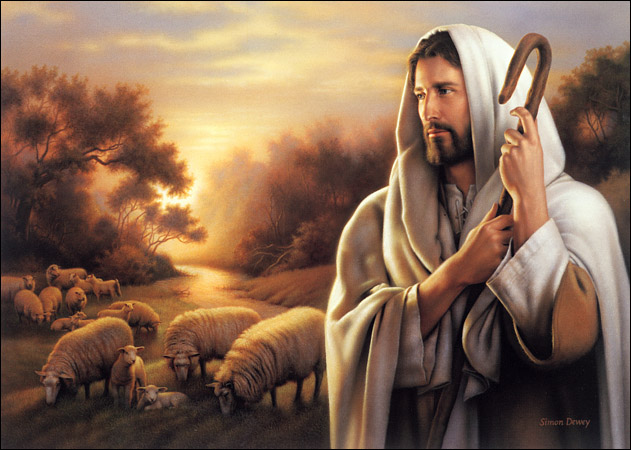 Enduring both in its beauty and simplicity, Psalm 23 is one of the most beloved Psalms of the Bible. It is one of our earliest recollections of memorizing the Scriptures.
Enduring both in its beauty and simplicity, Psalm 23 is one of the most beloved Psalms of the Bible. It is one of our earliest recollections of memorizing the Scriptures.
From the outset, David, the author of this great Psalm, declares rather emphatically and confidently, "The Lord is my shepherd; I shall not want." It indicates an absolute trust in the Lord to provide for all his needs - virtually everything imaginable (and unimaginable!) in this life - from the spiritual to the physical, to the emotional and the material.
To declare such confidence boldly and convincingly speaks of David's deep, abiding, and strong relationship with God without which no one can declare and claim such kind of absolute and utmost trust in the Lord. The key lies in a healthy and abiding relationship with God marked by an authentic and unshakeable faith in Him.
Even in the midst of pain, failure, and turmoil this Shepherd provides rest, refreshment, and restoration for "He makes us to lie down in green pastures...leads us beside the still waters...restores our soul...and leads us in the paths of righteousness." In a world filled with noise and many conflicting voices, we can always withdraw to a place of quiet, clarity, and security - right in the very reassuring presence of this Great Shepherd.
As a mighty warrior who has been to ferocious battles, David has seen the face of death multiple times. Yet through all those times he is without fear. He is oozing with confidence as he boldly declares, "Yea, though I walk through the valley of the shadow of death, I will fear no evil...for you are with me." He knows that his life is in the Shepherd's hands and come what may, he is eternally secure.
While David has many enemies that threaten his life and his people, he is assured of God's protection and preservation - a special favor that makes even his enemies wonder in amazement as they watch God at work in his life and over His chosen people. God protects. God vindicates.
David wraps up this magnificent Psalm with an affirmation of God's everlasting grace over his life, a prayer and a promise that can lift up anyone's soul: "Surely goodness and mercy shall follow me all the days of my life; and I will dwell in the house of the Lord forever."
This beautiful Psalm points to the One who came to earth one day and walked the shores of Galilee - Jesus. He made a strong connection to Psalm 23 when He declared, "I am the good shepherd. The good shepherd lays down his life for the sheep" (John 10:11). And indeed He laid down His life for us more than 2,000 years ago at a place called Calvary.
Yes, life can be unfair and downright cruel at times. We live in a fallen world and everyone experiences good things as well as bad things. But as we put our trust in the Great Shepherd, He will help us navigate through all the storms of life. Like a shepherd to his sheep, He will always keep us close, watching over us to make sure we make it safely home.
Psalm 22 - A Vivid Prophetic Description of the Suffering King
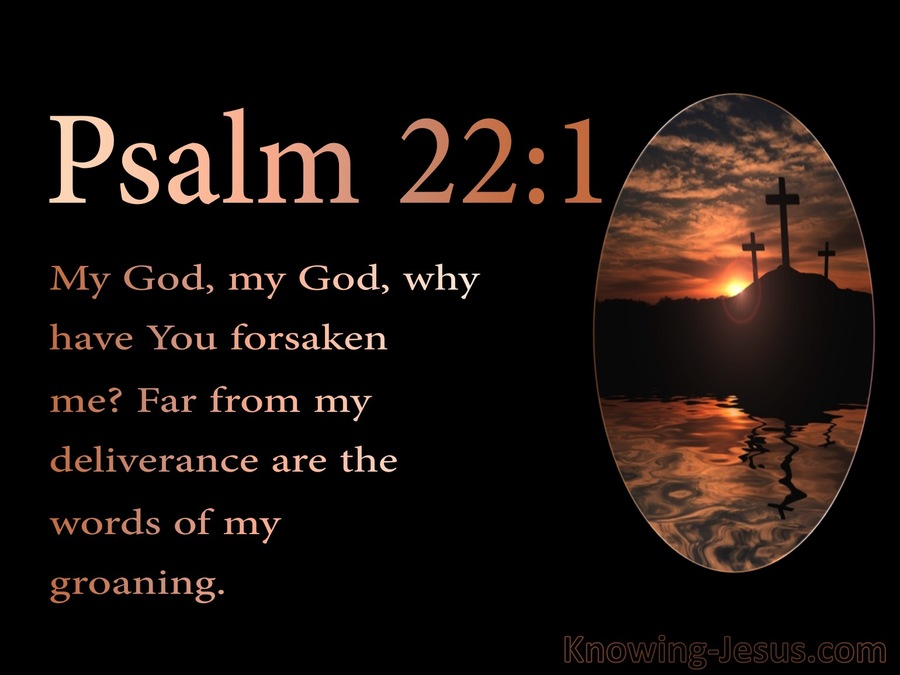 While Psalm 21 is all about the reigning, conquering King of the universe, Psalm 22 gives indication of the kind of suffering this King will go thorough when He appears the first time. This is something that the Jews had missed at the first advent of Jesus. They were expecting someone who would overthrow the Roman government and reestablish their own sovereign state. But alas, the promised King was uncharacteristically born to a poor family in a barn, putting a big dent to Jesus' credibility as the promised King among the Jews. To this day, many Jews are still awaiting the arrival of this reigning, conquering King.
While Psalm 21 is all about the reigning, conquering King of the universe, Psalm 22 gives indication of the kind of suffering this King will go thorough when He appears the first time. This is something that the Jews had missed at the first advent of Jesus. They were expecting someone who would overthrow the Roman government and reestablish their own sovereign state. But alas, the promised King was uncharacteristically born to a poor family in a barn, putting a big dent to Jesus' credibility as the promised King among the Jews. To this day, many Jews are still awaiting the arrival of this reigning, conquering King.
David, in vivid prophetical description of Jesus' agonizing death on the cross, plumbs the depth of his own suffering and, aided by the Holy Spirit, gives a startling revelation of future events spanning hundreds of years. The very first words of Psalm 22, "My God, my God, why have you forsaken me?" echoes Jesus' cry on the cross. Then in verse 7, Jesus' poignant experience in the hands of the Jews while on the cross was clearly depicted: "All who see me mock me; they hurl insults, shaking their heads, 'He trusts in the Lord,' they say, 'let the Lord rescue him...'"
When Jesus experienced excruciating pain and thirst, David, through his own experience hundreds of years before, remarkably predicted the exact agonizing pain of Jesus on the cross. This is how he described his own suffering in verses 14-18:
"I am poured out like water, and all my bones are out of joint. My heart has turned to wax; it has melted within me. My mouth is dried up like a potsherd, and my tongue sticks to the roof of my mouth; you lay me in the dust of death. Dogs surround me, a pack of villains encircles me; they pierce my hands and my feet. All my bones are on display; people stare and gloat over me. They divide my clothes among them and cast lots for my garment."
Amazingly, David has just perfectly described the Savior's future incomprehensible suffering that brought about redemption to humanity's fall. One of the greatest proofs of the accuracy, reliability, and infallibility of the Word of God is its fulfilled prophecies.
With great determination and remarkable faith, in the midst of his intense suffering, David continues to hold on to the greatest hope he has - God himself. He proclaims and affirms, "But you, Lord, do not be far from me. You are my strength; come quickly to help me."
With God on his side, David emerges victorious, his faith unscathed, and now he encourages everyone to put their trust in the Lord, to fear, praise, and honor Him. He cries out triumphantly, "I will declare your name to my people; in the assembly I will praise you. You who fear the Lord, praise him! All you descendants of Jacob, honor him! Revere him, all you descendants of Israel!"
Psalm 22, though it directly expresses David's own experience, is all about the future suffering and the once-and-for-all sacrifice of Jesus for our sins which is fulfilled in Calvary. His death freed us and gave life to our dying soul. As we repent of our sins and believe in Jesus, submit and follow Him, we discover that there is more to this life than we have ever known. Like David this is what I proclaim and will continue to proclaim:
"They will proclaim his righteousness, declaring to a people yet unborn: He has done it!"
A Grander Vision for 2017
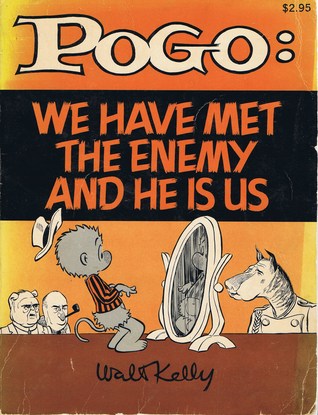 After defeating the British fleet in the Battle of Lake Erie of 1813, Oliver Hazard Perry, commander of the American fleet, dispatched one of the most famous messages in military history to Maj. Gen. William Henry Harrison. It read: "Dear Gen'l: We have met the enemy, and they are ours..."
After defeating the British fleet in the Battle of Lake Erie of 1813, Oliver Hazard Perry, commander of the American fleet, dispatched one of the most famous messages in military history to Maj. Gen. William Henry Harrison. It read: "Dear Gen'l: We have met the enemy, and they are ours..."
In 1970 cartoonist Walt Kelly famously paraphrased the statement as, "We have met the enemy, and he is us."
In our quest for personal change, we will discover soon enough that the greatest foe to overcome is self. Old habits are hard to die and replace. It takes an iron-clad commitment to pursue change every second, every minute...hour and day.
But if we are going to pursue a grander vision for 2017 and live up to God's purposes...change we must. And in recognizing our need for change, we are well underway for a great New Year!
Here's something I just read (source: Philippine Star):
According to WHO Philippines, these resolutions would lead to a healthier and happier 2017:
Have a healthy and balanced diet Quit smoking Exercise Drink less alcohol Visit your local health center regularly
And if I may add, give time for proper care of the soul. It's the one thing that will last for eternity. Happy New Year!
Christmas - the One Event that Shook History and Split it in Half: B.C. and A.D.!
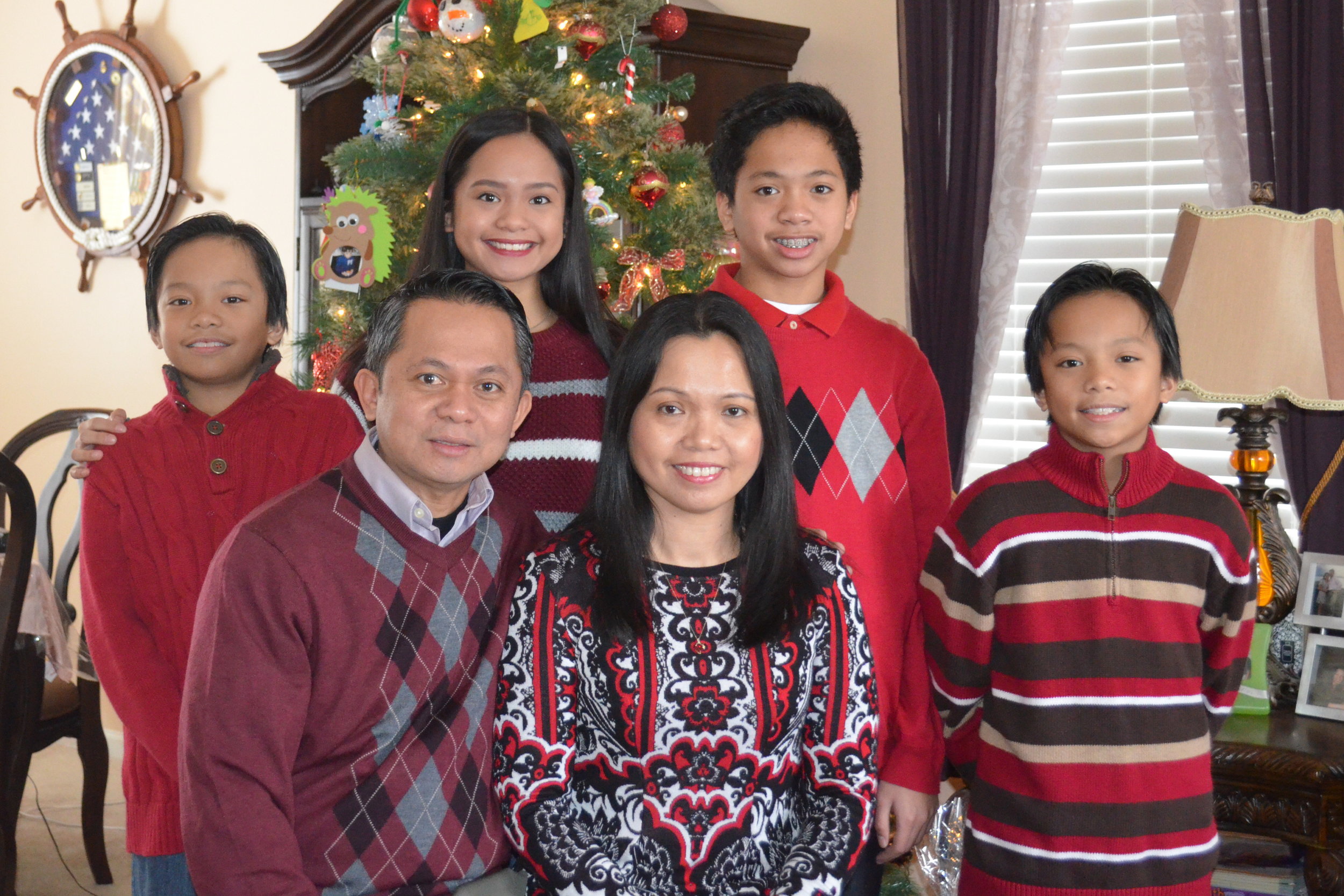 Galatians 4:4-5
Galatians 4:4-5
"But when the fullness of time had come, God sent forth his Son, born of woman, born under the law, to redeem those who were under the law, so that we might receive adoption as sons." (ESV)
“But when the fullness of time had come…” (v.4a)
From the eternal counsels of heaven God set in motion the plan of redemption. All the Old Testament prophecies concerning the first arrival of the promised Messiah were about to unfold. The time was ripe for the gospel to be proclaimed throughout the world. The Roman Empire was in power and they had built roads and bridges, and all the infrastructures needed for trade and commerce to prosper, which brought people closer together. These were all favorable to the gospel, which later on, the apostles, foremost of which is the apostle Paul, were able to use for the evangelization of Asia, Europe, and beyond.
“God sent forth His son…” (v.4b)
This is the very heart of Christmas - the one event that shook history and split it in half: B.C. and A.D.! When God gave up His Son, He understood the full ramifications of God being in the hands of angry sinners. A divine, pure sacrifice must be made to satisfy His righteous justice. There was no other way. No person on his own can ever atone for his sins no matter what he does. While all other religions teach that people must reach out to God and meet His holy standards to be saved, Christianity teaches that God has reached down to us and did it all on the Cross of Calvary. While other teachings say, “do” Christianity says, “done.” And Jesus did it once and for all.
“Born of a woman, born under the law…” (v.4c)
God’s answer to human suffering is not an explanation but the incarnation. He was born of a woman to indicate that while he was fully God He was also fully man who went through the full gamut of all human experiences. He felt rejection. He felt pain. He was emotionally shaken. He wept. When we are tempted to say that life is unfair, the incarnation reminds us that God “has been there, done that.” He came and identified with our sorrows, struggles, and pain. He subjected Himself to the very laws He created so that He might fulfill them - both the letter and the spirit of the law.
“So that He might redeem those who were under the Law…” (v.5a)
Through His suffering, death, and resurrection, the old covenant was abolished and a new covenant of grace was established – His unmerited favor extended to undeserved sinners. To “redeem” means, “to buy from the slave market.” We were all consigned in the slave market because of the fall of man. But Christ became our full, absolute, and final payment for sins. His death freed us from the dark slave market and gave us complete freedom that brought us into the kingdom of His light.
“That we might receive the adoption as sons…” (v.5b)
The incredible gift of sonship. It is the greatest gift that we can ever receive. The one gift that surpasses all gifts is a relationship with God through His Son. What the first Adam lost in the Garden of Eden, Jesus, the second perfect and last Adam, regained it back from the cross. Death came to all through the trespass of one man, but life came through the sacrifice of one pure, spotless Lamb of God – Jesus. In Romans 5:18 and 19, Paul beautifully sums it up for us, “Yes, Adam’s one sin brings condemnation for everyone, but Christ’s one act of righteousness brings a right relationship with God and new life for everyone. Because one person disobeyed God, many became sinners. But because one other person obeyed God, many will be made righteous.”
Today, as we enter the season of gift giving, why don’t we receive the greatest gift ever available to mankind? It’s free for the asking. All it takes is to receive Jesus by faith and accept Him into your heart. Surrender your life to Him and repent of your sin. Trust Him and you will never be the same person again. Merry Christmas!
Psalm 21 - The One True King
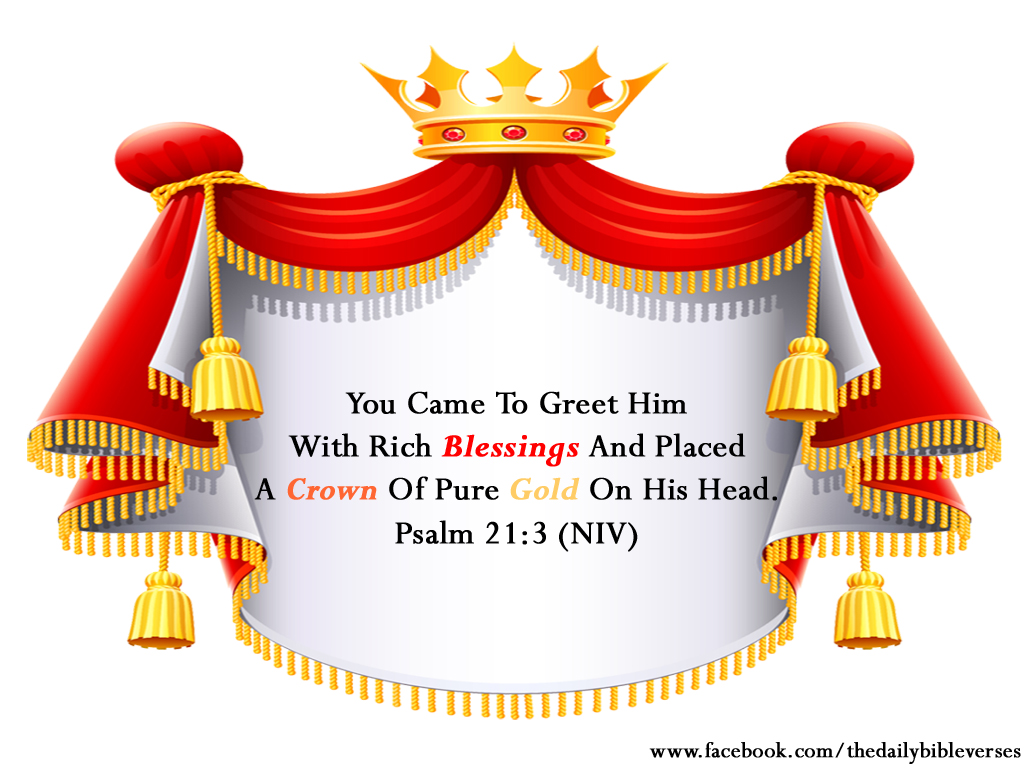 Psalm 21 is a depiction of a victorious king - undoubtedly a prophetic reference to the One true King - Jesus. If the prior psalm - psalm 20 is a prayer that speaks of the king's blessing upon his army, psalm 21 is a bestowal of blessings upon the king himself.
The author of this psalm is David, the greatest king of Israel. In it, he acknowledges that it's God's strength and power that gave him the victories he accomplished as a king. Let's listen in to him, "The king rejoices in your strength, LORD. How great is his joy in the victories you give!"
Psalm 21 is a depiction of a victorious king - undoubtedly a prophetic reference to the One true King - Jesus. If the prior psalm - psalm 20 is a prayer that speaks of the king's blessing upon his army, psalm 21 is a bestowal of blessings upon the king himself.
The author of this psalm is David, the greatest king of Israel. In it, he acknowledges that it's God's strength and power that gave him the victories he accomplished as a king. Let's listen in to him, "The king rejoices in your strength, LORD. How great is his joy in the victories you give!"
Kind David recognizes God as an answering and giving God who grants his heart's desire and has not withheld his requests. God also gave him unending blessings foremost of which is eternal life and joy in His presence. And because he trusts in the Lord, he will not easily falter. These are wonderful royal benefits that king David experienced yet they are also available to anyone who is a child of God. Just come to think of it, as sons and daughters of the King and Ruler of the universe, we have all these royal benefits in Christ for we belong to His kingdom! (read Ephesians 1).
From verse 8 till the end of this psalm, king David turns his attention to the power, strength, and might of the one true King. This King will one day appear for battle and will burn his enemies up as in a "blazing furnace...and His fire will consume them." Talk of divine retribution - while we are looking for true justice in the world today against evil atrocities it will not come until the coming of this one true King. Human justice is usually corrupt, unfair, and does not go far enough. But divine justice is perfect, fair, and swift.
And so with David we shout, "Be exalted in your strength, LORD; we will sing and praise your might."
Psalm 20 - A Kingly Prayer for You Today
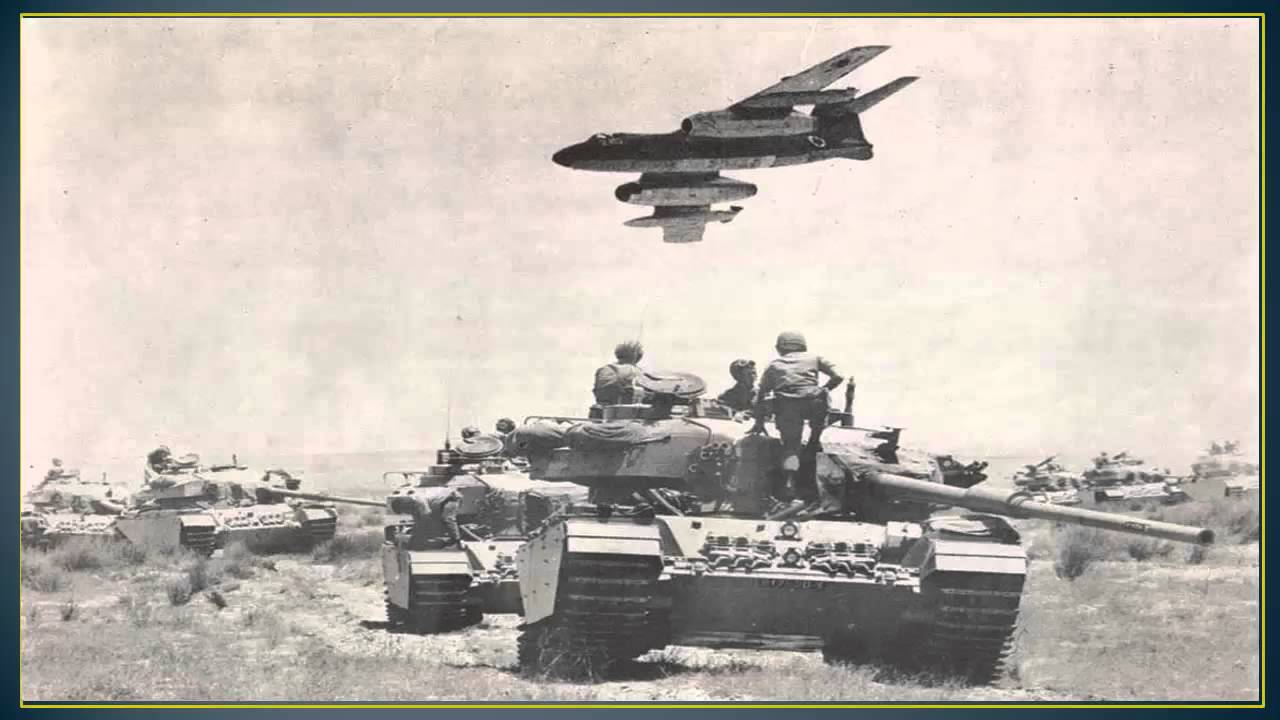 Israel's "Six Day War" of 1967 is one of the greatest and most decisive battles of the 20th century. Against the combined forces of Egypt, Syria, Jordan, Iraq, and Lebanon, Israel faced certain annihilation. But a brilliant military strategy by Israel through a surprise, preemptive strike against Egypt decimated their air force, and in turn gave Israel vaunted air superiority throughout the war which helped them achieve a decisive victory.
Israel's "Six Day War" of 1967 is one of the greatest and most decisive battles of the 20th century. Against the combined forces of Egypt, Syria, Jordan, Iraq, and Lebanon, Israel faced certain annihilation. But a brilliant military strategy by Israel through a surprise, preemptive strike against Egypt decimated their air force, and in turn gave Israel vaunted air superiority throughout the war which helped them achieve a decisive victory.
But it's more than that. Throughout the centuries, Israel has always faced existential threats from its hostile Arab neighbors even today. And throughout the years Israel has survived and remains a strong nation, always ready to defend herself. How so? Psalm 20 gives us one of the keys.
Psalm 20 is a kingly prayer for those who go to battle. From verse 6 and on the prayer goes, "The LORD gives victory to his anointed. He answers Him from his heavenly sanctuary with the victorious power of his right hand. Some trust in chariots and some in horses, but we trust in the name of the LORD our God."
One just has to look at Israel's history if there is any doubt about the existence of God. Is it any wonder how this tiny nation, the size of the state of New Jersey, has survived against overwhelming odds even through the darkest times of its history - especially during the holocaust? Israel is God's sounding board to the world and prophetic timetable for the ages.
In the sense that God has chosen Israel as His people, God has also chosen us to be His sons and daughters through faith in the death and resurrection of His Son, Jesus. He is our King and thus Psalm 20 is very much applicable to all of us. It is a Kingly prayer for you and me, one that we can access anytime we are in distress. Here's the first five verses:
"May the LORD answer you when you are in distress; may the name of the God of Jacob protect you. May he send you help from the sanctuary and grant you support from Zion. May he remember all your sacrifices and accept your burnt offerings. May he give you the desire of your heart and make all your plans succeed. May we shout for joy over your victory and lift up our banners in the name of our God. May the LORD grant all your requests."
What an awesome and beautiful prayer! We can carry this with us anywhere we go. Truly a remarkable prayer.
Psalm 19 - An Inescapable Witness

We are witnesses to the amazing beauty and mystery of the moon when it stood the closest to our planet in nearly 70 years about a week ago. It was 14% bigger and 30% brighter than usual. Facebook was littered with pictures captured by people who marveled at this phenomenon. What makes such rare occurrence pique people's interest and cause them to marvel at this beauty? Psalm 19 gives us a clue: "the heavens declare the glory of God; the skies proclaim the work of his hands."
Psalm 19 contains one of the most powerful arguments for the existence of God. A paraphrased version of the Bible called "The Message" minces no words, "God's glory is on tour in the skies, God-craft on exhibit across the horizon. Madame Day holds classes every morning, Professor Night lectures each evening" (vv. 1-2).
The famous French mathematician and physicist, Blaise Pascal, once stated, "The eternal silence of these infinite spaces frightens me." The vast expanse of the universe continues to baffle science and yet they also continue to speak to everyone's heart. If there is any doubt of the existence of God, take a walk outside at night and look up above, and let the majestic beauty of the skies and the profound mysteries of the heavenlies sink deep into your soul.
There may be "eternal silence" as described by Pascal but David who wrote this psalm saw something beyond this silence, "day after day they pour forth speech; night after night they reveal knowledge. They have no speech, they use no words; no sound is heard from them. Yet their voice goes out into all the earth, their words to the ends of the world." If we stay long enough to listen in to the revelation of heaven we may yet find what our soul is longing for.
The psalmist ends this chapter with a verse we often quote, "May these words of my mouth and this meditation of my heart be pleasing in your sight, LORD, my Rock and my Redeemer (verse 14)." The words of our mouth and the meditation of our heart always go together. You can tell a person's character by the way he speaks. Our inner thoughts are revealed by the words we utter.
How then can our words and the reflections of our heart be pleasing in God's sight? The answer is found from the verses preceding verse 14. By loving and holding in high esteem the word of God described by the psalmist in this chapter as one that refreshes the soul, gives joy to the heart, and light to the eyes. He goes on to say that God's word is more precious than gold and sweeter than honey.
When we spend time in the Word our words and the inner thoughts of our hearts become pleasing in the sight of our LORD who is our solid Rock and also our Redeemer.






